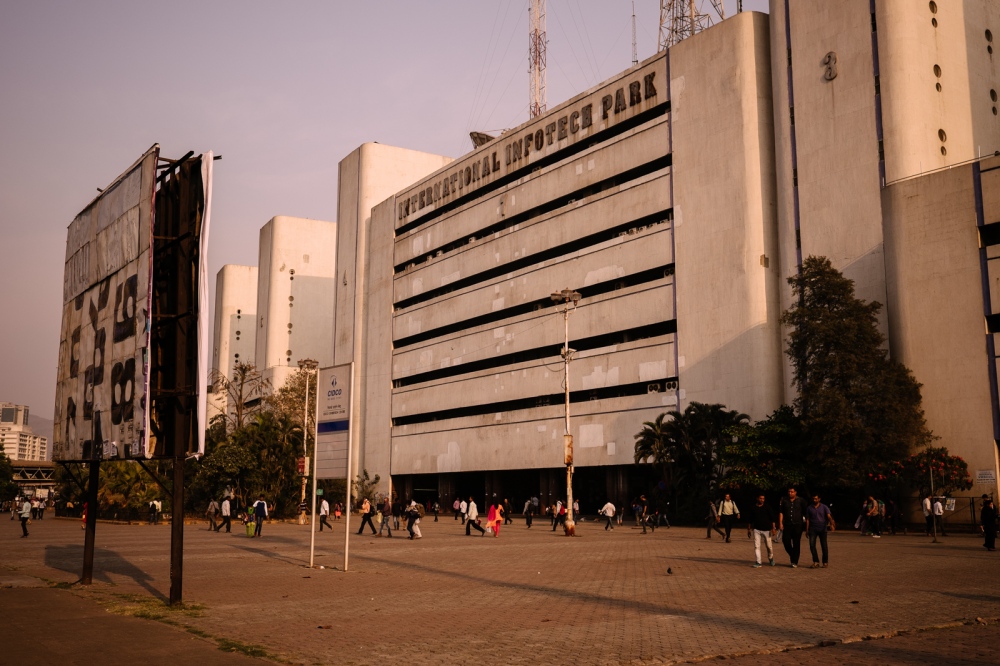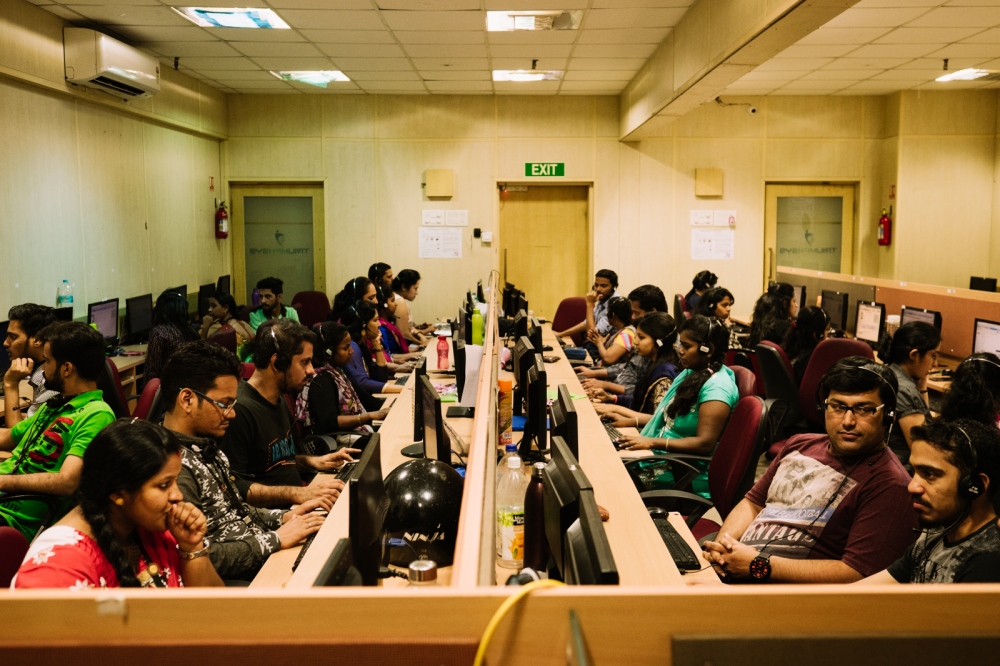"How Can I help you?"
"How can I help you?" is an ongoing photo documentary on call centers and the daily life of their employees, which so far is focused in India and in the Philippines. I intend to pursue this project across other countries such as the USA, the UK, Bulgaria, Nigeria, Colombia and China. I started this project in 2015 after a working experience I had in a call center in London.
The first two countries already covered (from February to May 2016) are the two biggest markets in this industry. Together India and the Philippines employ two million people who are calling and taking calls to and from such faraway places as the USA, the UK and Australia. With "How can I help you?" I want to reveal the lives of this faceless people with whom we may talk on a daily basis and who are working on different parts of the world. Economically speaking this is one the biggest employers worldwide. Students, emigrants, unemployed people, recent graduates, artists or freelancers, can all find a temporary work opportunity in this business. Some end up building a career in the area and others had that aim from the beginning. From an economic and social perspective the diversity will increase once I may come across with this reality in all the countries I intend to document. Going through other countries I want to show/ understand the diversity, the contrast (or not) from country to country.
In India and the Philippines, call center workers mostly work on night shifts due to the time difference to the countries they are in touch with and they are immersed in a westernised culture as a result of their work.
Most of the people I saw working in this industry are aged between 18 and 35. They are mainly students or recent graduates who could not find another job. There are also people in their 40´s both in India and the Philippines who started working as call center agents since this business started, around 20 years ago. Those have developed a career in the industry, progressing to higher ranks such as supervisors, team leaders or managers.
India joined this industry in the mids 90´s and quickly became the leader, staying in this position for at least 10 years. There the average agent earns as little as 100 to 500 USD per month, even though most of them are highly qualified with engineering and business degrees. The lack of job opportunities and the lower salaries in other businesses in the country are the main reasons why so many people work in call centers. This industry also has contributed to improve the English language skills of these people as well as their knowledge about the USA and UK. I met many people that strive to improve their American accent and learn more about the USA. As part of their trainings, they have to understand the American culture and how American people think. Also they learn the abbreviations, as well as they must know all the 52 American States. In addition, when they start working in this industry and if dealing with international clients, they need to choose an American or English name.
"Once we start working in this business we have trainings on how to speak to the costumer, how to make the American accent. We have to develop a very fake accent to convince the clients that they are speaking to someone in the USA." Rajender, 42 years old. Supervisor. Mumbai.
The Philippines overtook India in 2011, becoming the biggest call center industry in the world. Workers get paid slightly more. They earn, depending on the account they are assigned to, from 200 to 1000 USD/ month. A call center agent in Manila might get payed twice or three times more than a nurse working in a Hospital, for instance.
The "boom" of call centers in the Philippines changed the prospects of the younger generation. Now they earn enough money to live their own lives, look after themselves and help their families.
"Economically speaking this industry is a big player and help our economy to grow and to increase people´s purchasing power." Ian, 33 years. Call Center Manager. Manila.
On the other hand, these days people don´t need to finish their University studies to start working in the industry. Unlike India, youngsters in the Philippines consider starting these jobs at an early stage without finishing their education. This could lead to a problem in the future because there will be less specialisation in vital jobs such as doctors, lawyers, engineers or other fields.
Moreover, in the Philippines, is one of the countries with more transgender people in the world and in this industry they find better job opportunities. Otherwise, they would join the sex industry.
"Transgender have more opportunities in the call center industry because we don´t really have to face our customer in person. We just have to talk on the phone, assist them over the line. We can have a different "persona" / image on the phone, we can be who we would like to be in real life." Bessie, (Rachel) 32 years old, Manila.
Overall, spending four months in India and in the Philippines developing this part of the project made me understand how much these people value their job. For them, there is no stigma attached to working in a call center, as opposed to the way it is mostly perceived in the western countries. I was surprised to see how well seen it in India and the Philippines. As well as the fact that in these two countries it can be seen as a career.
Furthermore this job is paying their living, specially when it is so difficult to find a full time job in both countries. The business is also helping to boost the economy of both countries.
Now, once the two biggest and most known countries in this business are already covered, I want to continue the project to understand and reveal differences in a world wide scale. From the USA to the Philippines and from India to the UK, for instance: do the conditions change?, what is the difference in wages?, what about their lifestyle, how does it change?
Apart of these 4 countries I also want to include in the whole project: Colombia (has a very important role regarding Spanish speaking people); Bulgaria (recently one of the biggest and cheapest hubs in Europe); Nigeria (one of the most important hubs in the African continent); and finally China (which is considered as a possible the future leader, in a 10 years time, for what they are training people to improve their English skills).
José Sarmento Matos - www.josesmatos.com































